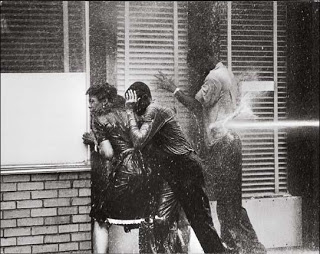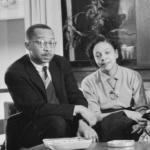Read Part 1 here
This summer for two weeks at Memphis Theological Seminary, I get to teach “Rhetoric of Race: The Rhetoric of the Civil Rights Movement.” In this class, we engage in a careful reading of major sermons, speeches, and writings during the Civil Rights Era (1954-1965). From this, by grounding ourselves in rhetorical and other communication theories and practices, we examine the contributions of significant people to the movement by examining the ways in which they grounded their discourse in religious language. By studying the Civil Rights Movement and the use of religious testimony, the application of civil religion, the use of the Bible, the use of biblical narratives, the role of the Church, and an understanding of God and God’s action in world, helps to provide a basis for reflection upon issues that are germane to us even today.
I am glad that I enrolled in this course. I am deeply appreciative and so fortunate to be here. I think the main thing I felt when doing the readings for tonight’s class is grateful; grateful to be here, to be studying the writings of these fine women and men, and grateful for the opportunity to learn from my classmates and professor. I am honored to have this chance to become a better human being.
Ministers should ask God to filter out anything that would get in the way of them preaching an unbiased Gospel and seeing things unclearly.
 Again, noting that this was a problem for many segregation-minded preachers, this student reflected further,
Again, noting that this was a problem for many segregation-minded preachers, this student reflected further, How can preachers proclaim God’s word without first talking to God about it? Before declaring God’s word, every minister must take time to prayerfully commune with God.
p;q=%E2%80%9COf%20This%20Gospel%20I%20was%20Made%20a%20Minister%E2%80%9D%20houck%20and%20dixon&f=false”>“Of This Gospel I was Made a Minister”, I felt inspired and it increased my faith. Why? Because it gave me a valuable insight on what is the role of a minister.
I am hurt and angered at my memories of the late 50s and the 60s in Jim Crow Memphis….and have made progress (through God’s intervention) in reconciliation with white America. The graphic scenes in the video are still penetrating and painful. The real pain is the knowledge that we still have so far to go to improve interpersonal and group relations in America. Race continues to be a major thorn in the underbelly of progressive America. Jim Crow is still alive and well in 2013!
What students are noting in reading speeches from the era along with hearing speeches from die-hard segregationists is that this rhetorical template is still in play. In short, what students are so surprise to read and to hear is that the strategies, arguments, and rhetorical flourishes made in support of segregation and Jim (and Jane) Crow are still made today for a host of initiatives programs, and policies. I continue to be inspired by this group and look forward to sharing more reflections.


















